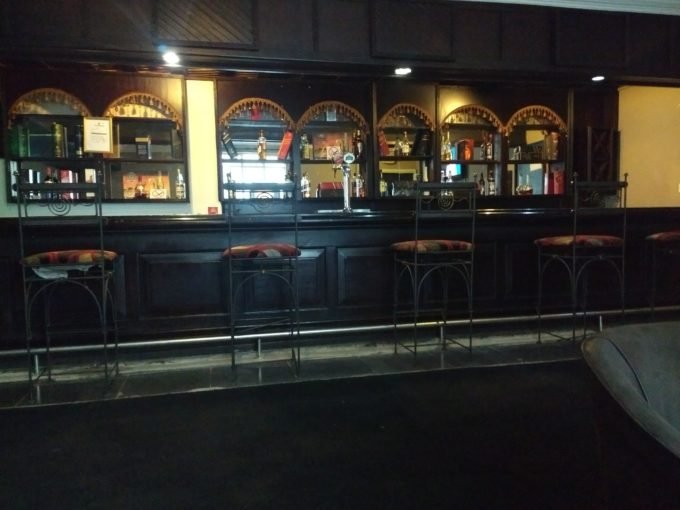
A Dispatch from Zimbabwe’s Press Club

A Dispatch from Zimbabwe’s Press Club
Lite Beer in Zimbabwe
Central Harare primarily offers two types of drinking spots: a rowdy sports bar or a rather staid hotel bar. Each has their own advantages. I was in the country as part of my university research just days before Zimbabwe’s first elections since the ouster of its long-serving head of state, Robert Mugabe, so I was eager to go to the latter and check out the scene at the Quill Club, Zimbabwe’s press club.
The Quill Club is housed on the first floor of the (New) Ambassador Hotel. The hotel dates back to the mid-1950s, constructed when the economy of what was then-colonial Southern Rhodesia was booming. It is located right in the thick of the country’s hub of government, sandwiched in between parliament, courts, and several ministries.
Under Greek ownership, it was one of the first hotels in the white settler dominated British colony to integrate in the early 1960s. Edson Sithole, a lawyer and one of the country’s leading anti-colonial activists, mysteriously disappeared outside the hotel in 1975 after grabbing a drink at the club. Independence came five years later and today the portrait of President Emmerson Mnangagwa, the man who replaced Mugabe in a so-called ‘soft coup,’ graces the hotel lobby.
The club attracts an interesting mix of characters. Freelance journalists churn out stories over laptops in a semi-detached room, further delimited by an adroitly positioned pool table. NGO workers find it to be a convenient place to mix with colleagues in the media and given its proximity to government offices, civil servants, and Mnangagwa’s ruling party partisans also make frequent appearances.
The curious, but not unique situation in the Quill Club, where critical journalists file anonymous political stories to international outlets such as the Voice of America as government operatives quaff Zambezi lager in the same room, epitomizes the complex environment I seek to wade through in my research of Zimbabwean culture and politics.
[Read: Eating KFC during Zimbabwe’s coup]
On the Thursday before the election, I arrived at the club just before 5 p.m. There were a handful of scribes pecking away, but the common room with a rather elegant bar was quiet, except for a flat screen TV displaying a CNN broadcast on press freedom.
I had a heavy, late lunch, so I ordered a Castle Lite, a South African import. It’s the most common brew that doesn’t require a bottle deposit, so its green empties can be seen littered all over the city. Slowly, the bar livened up. I’m joined by a gentleman who claims to work in the Ministry of Foreign Affairs. We chat about best practices in diplomacy in the context of the recent Trump–Putin summit in Finland. Several journalists appear and greet me—they remember me from my previous visit to the club, several months ago.
All eyes are on the credibility of Zimbabwe’s election, but inside the Quill Club and Ambassador Hotel, a checkered history, has, at least on the surface, given way to camaraderie, despite the mixed company. All seem to cherish the cosy and congenial environment in which the aura of the press club appears to momentarily empower (male) visitors to rise above the toxic political and economic pressures which loom over the lives of all Zimbabweans. My bottle empty—and properly disposed of—I head out into a crisp July winter night, fortified with an invigorated sense of cautious optimism concerning Zimbabwe’s future prospects, regardless of the outcome of the elections.
The Quill Club
The New Ambassador Hotel
88 Kwame Nkrumah Avenue
Harare